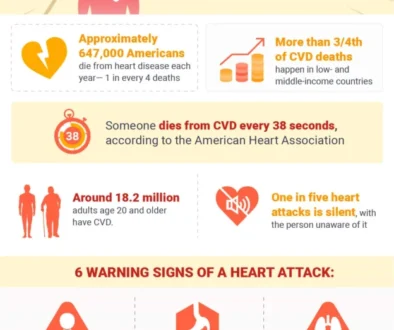Warding Off Holiday Weight Gain
 The holiday season is a time to celebrate with family and friends. But unfortunately, with all the holiday parties and family gatherings, it also becomes a time for over-eating and weight gain for many. “Weight gain over the holidays is a large part of the typical weight gain that adults have over the years,” notes Dr. Jack Yanovski, head of the Unit on Growth and Obesity at NIH. He and his colleagues found that almost all the weight that people had gained over the course of a year could be explained by the pounds they added over the holiday period.
The holiday season is a time to celebrate with family and friends. But unfortunately, with all the holiday parties and family gatherings, it also becomes a time for over-eating and weight gain for many. “Weight gain over the holidays is a large part of the typical weight gain that adults have over the years,” notes Dr. Jack Yanovski, head of the Unit on Growth and Obesity at NIH. He and his colleagues found that almost all the weight that people had gained over the course of a year could be explained by the pounds they added over the holiday period.
The holidays don’t have to mean weight gain. Focus on a healthy balance of food and activity, while still having fun. By implementing a few simple tips you can stay healthy through the holiday season.
At holiday parties:
1. Eat a healthy snack before leaving home. This will reduce the risk of overeating at the party.
2. Survey the party buffet first, and then decide what and how much you will eat. Include vegetables and fruits to keep your plate balanced.
3. Limit alcohol, soda, and other sweetened beverage (like egg nog) consumption. These drinks can be a major source of hidden calories, and drink water.
4. Trim the fat from the meat. Each tablespoon of fat you trim off contains 100 calories.
5. Choose foods with fewer calories. Foods with fewer calories for their size make you feel fuller sooner.
6. Use smaller plates. The bigger your plate and the more food that’s on it, the more you’re likely to eat.
7. Eat until you are satisfied, not stuffed
8. Savor every bite. Eating slowly reduces your chances of eating too much.
9. If you overeat at one meal, go light on the next. It takes 500 calories per day (or 3,500 calories per week) above your normal/maintenance consumption to gain one pound. It is impossible to gain weight from one piece of pie!
If you’re throwing the party, here are a few ways to be a healthy holiday host:
1. Schedule holiday food celebrations at normal meal times. Celebrations outside of normal meal times encourage people to pile on extra calories.
2. Offer a variety of low fat, high fiber foods
3. Serve healthy alternatives to traditional holiday dishes. Transform traditionally high fat and high calorie foods into low fat healthier versions.
Importantly, plan time for regular exercise, which will relieve holiday stress and prevent weight gain. A moderate and daily increase in exercise can help partially offset increased holiday eating.
In the end, make sure to enjoy the holidays, stay physically active, incorporate healthy recipes into your holiday meals, and don’t restrict yourself from enjoying your favorite holiday foods. Celebrate the season in good health!
Sources:
NIH News in Health Nov 2007
CDC.org


